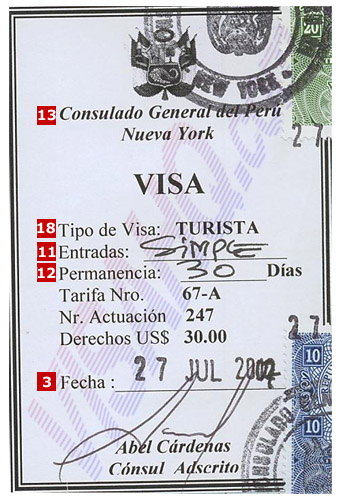Peru Embassy list in New Caledonia
Need help?Chat with us
Why Trip Registration at the Peru Embassy is Important
Registering your trip with the Peru embassy is essential for ensuring your safety and well-being while traveling. In the event of a natural disaster such as earthquakes or floods, the embassy can provide timely alerts, evacuation plans, and shelter information. Additionally, during periods of political unrest, registered travelers can receive updates about safety conditions, avoiding potentially dangerous areas. In medical emergencies, the embassy can facilitate communication with healthcare providers and assist in finding appropriate medical care. Knowing that the embassy has your travel information fosters a sense of security, allowing you to focus on enjoying your trip while being prepared for any unforeseen circumstances.
Peru Embassy FAQs
Can the Peru embassy assist in legal issues abroad?
Yes, the Peru embassy can provide assistance in legal matters by offering guidance on local laws and connecting you with legal representation if needed.What should I do if I lose my Peru passport in New Caledonia?
If you lose your passport, report the loss to local authorities and contact the Peru embassy immediately for assistance in obtaining a replacement.Can the embassy help with travel safety tips?
Yes, the embassy offers travel alerts and safety updates to help travelers stay informed about current conditions and potential risks.What support does the embassy provide for detained nationals?
The embassy can offer assistance by providing legal referrals, visiting detained nationals, and liaising with local authorities on your behalf.
Services Provided by Peru Embassies in New Caledonia
Passport Services
- Issuance of new passports
- Passport renewal
- Lost passport replacement
Visa Issuance for Foreign Nationals
- Visa applications for travelers to Peru
Assistance in Legal or Medical Emergencies
- Legal referrals and support
- Medical assistance coordination
Travel Alerts and Safety Updates
- Information on safety conditions and travel advisories
Support for Nationals Detained Abroad
- Liaison with local legal authorities
- Assistance for imprisoned nationals
Summarized Diplomatic Presence
Peru maintains a diplomatic presence in New Caledonia through its embassy, which serves as a key point of contact for Peruvian nationals and facilitates international relations. The embassy primarily focuses on providing consular services, promoting bilateral trade and cultural exchange, and supporting Peruvians living or traveling in the region. Located in the capital, Nouméa, the embassy plays a vital role in enhancing Peru’s diplomatic presence in the South Pacific, fostering cooperation, and ensuring the welfare of its citizens abroad. The strong bilateral relationship is crucial for both countries as they work together on various political, economic, and social matters.
